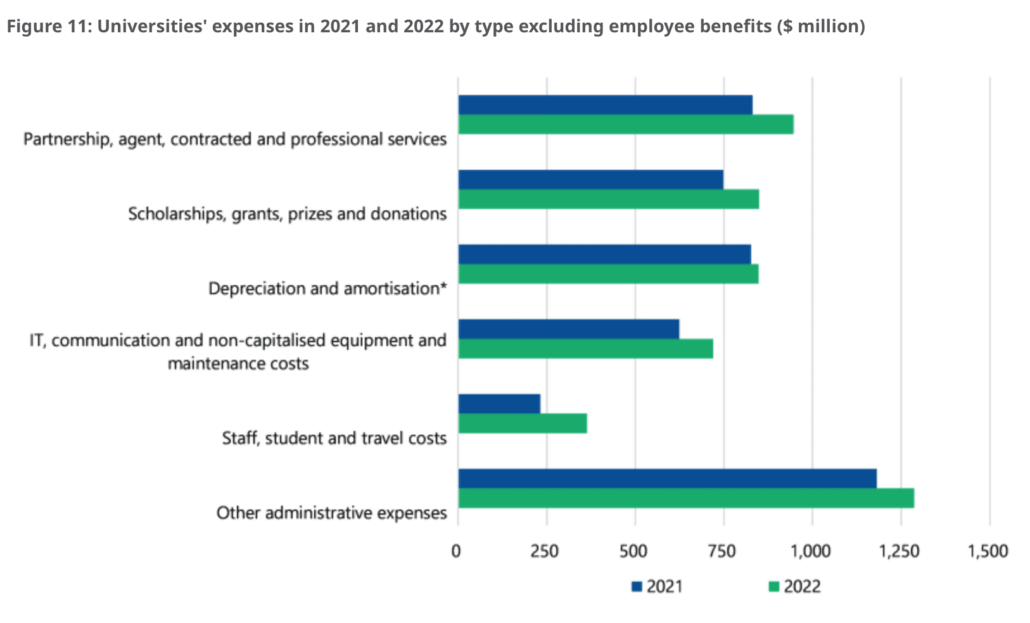EdTech – overhyped or poised to deliver?
The recent release of the annual Victorian Auditor-General Office’s (VAGO) report into the finances of Victoria’s public universities contained a result which surprised me.
The second highest area of expenditure, after employee expenditure, in Victoria’s universities was “partnership, agent, contracted and professional services”. VAGO noted that “universities partnered with other entities to broaden their services and diversify their revenue sources, such as partnerships with microcredential course providers and online course delivery providers.”
In 2022 Victorian universities spent $946.6 million on partnership, agent, contracted and professional services costs, which was a $115.9 million (14%) increase from $830.7 million in 2021.

With many Australian universities using partners – including EdTech partners to help them with their online learning – there is no reason to think the Victorian data differs significantly from that in other States and Territories.
And yet despite this healthy level of investment, at least in Australia, a number of EdTech firms which work with universities and other tertiary education providers are facing challenges to their business models.
The Chinese EdTech sector collapsed after regulatory changes introduced in 2021.
Confidence in the Indian EdTech sector has been badly damaged by the questions being asked about market leader, Bijou’s.
And despite many tertiary education providers in the US, UK, Australia and other developed economies having a growing reliance on Online Program Managers and other EdTech partners – confidence in EdTech has been dented in these countries in part because of the less than impressive technology many educational institutions used during the pandemic (which was frequently of a lesser quality than the EdTech offered by OPMs and other specialist partners).
As EdTechX co-founders, Benjamin Vedrenne-Cloquet and Charles McIntyre, made clear in their opening keynote address to this year’s EdTechX Europe conference – “EdTech hasn’t delivered on its promise”.

And that honest but gloomy assessment of the state of the EdTech sector does not account for the future challenges and opportunities which generative AI (like ChatGPT) offers EdTech.
But it also doesn’t account for the growing role EdTech is playing in supporting corporate upskilling and reskilling – and the profound educational improvements offered by personalised, adaptive learning – a form of AI delivering measurable educational benefits…
So, despite the reality check that McIntyre and Vedrenne-Cloquet offered to start the EdTechX Europe conference – there was a lot more to inspire, excite and challenge delegates during the event.
You’ll find a summary of the conference available to download on the ‘About page‘.





